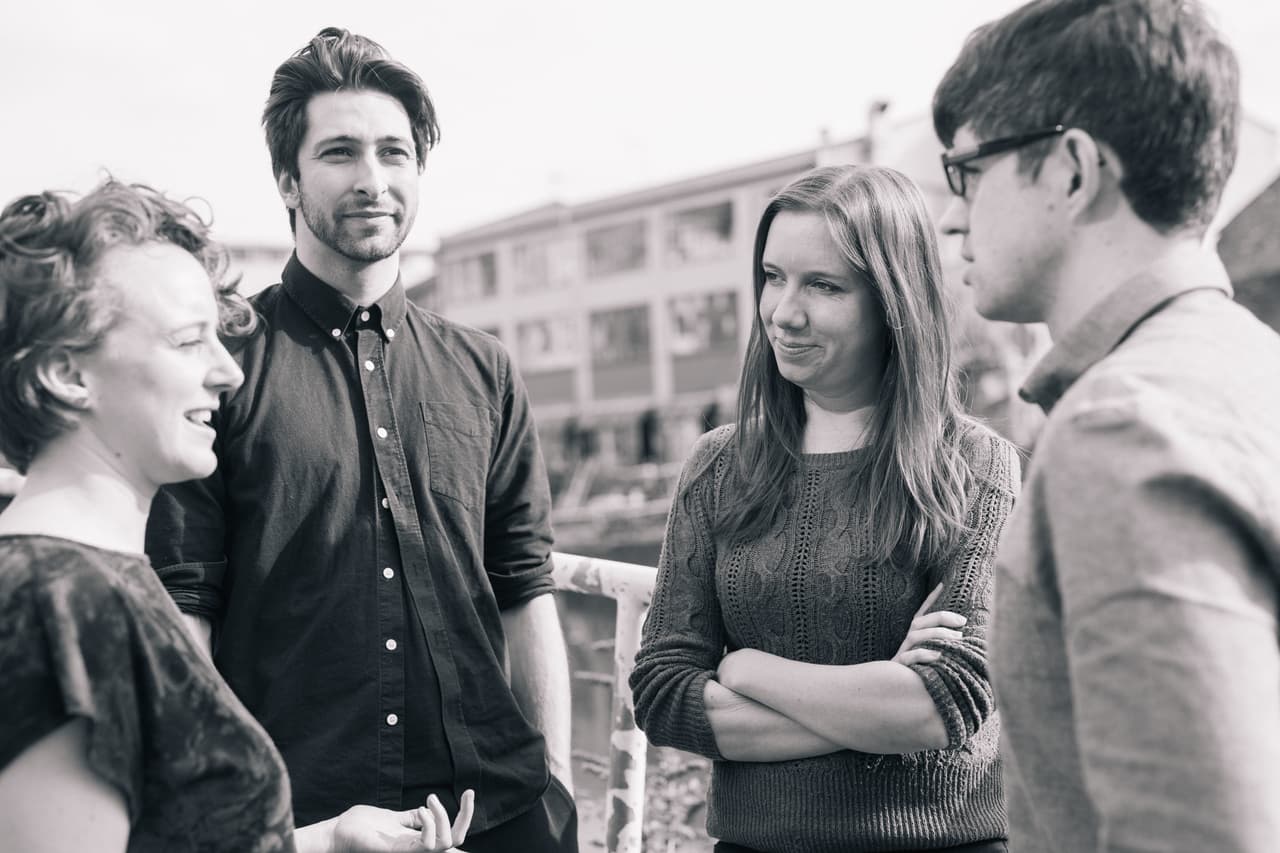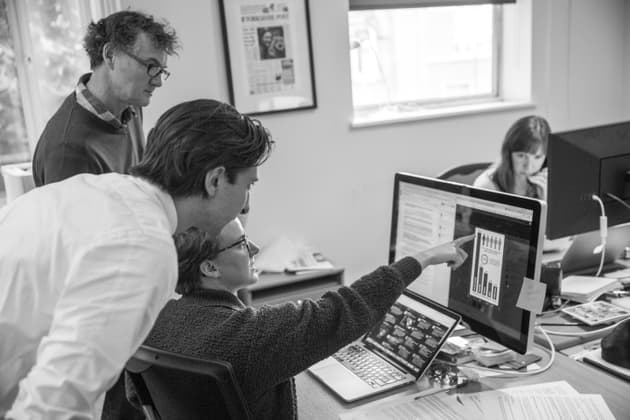
Let’s talk about sustainability: the Bureau Local’s approach to business development
How do we sustain our commitment to communities across the UK?
This is the question we are asking ourselves at the Bureau Local right now. And truth be told, it has been the question at the heart of our work since setting up two years ago.
In 2017, the Bureau Local was launched in response to the crisis in local news. The team wanted to stand with other reporters and fight for the future of local journalism.
We did so by taking an editorial approach. We found that time and resource constraints meant many of those working at local outlets were struggling to carve out space to do the deep-dive investigations they wanted to.
So, we took on nationwide, systemic issues, we localised data, leads and findings and we opened them up for public access. We collaborated with local journalists and citizens, we mobilised that network and we sparked change.
Two years later we’re proud to have more than 1,000 people joining us in investigating under-reported issues such as homelessness and council finances and telling local stories to help improve their communities. All of this was done despite it being a difficult time for local news. In fact, the majority of our network are non-journalists. This group of people — technologists, designers, activists and teachers as well as journalists — have shown a commitment to local accountability and have demonstrated the power of individual and collective action.
It wasn’t long before we realised that our fight is about much more than journalism — it’s about community knowledge and local power. Journalism is simply the conduit.
And with that realisation came an overwhelming concern for how we will maintain our work. We are, after all, a tiny team of five full-time staff, and currently dependent on foundation and major donor funding. We fear that philanthropy is not enough to respond to the full scope of the challenge — both for the Bureau Local and for the wider industry.
So, we began mapping out what sustainability would look like and how business development could support the continuation of the Bureau Local, with the hope that whatever success we may find could be shared across the wider ecosystem.
Thanks to the European Journalism Centre’s Engaged Journalism Accelerator, we were given support to take this on over a six-month period. As a result, we produced a guide to our process and outcomes. You can access the report here.
We started with culture and process
Because we have a mission and commitment to local people, local communities and local stories, we approached sustainability not as a pursuit of profit but with our focus on longevity and impact.
As a non-profit that has never dipped its toe in revenue-generating activities outside of philanthropic fundraising, we knew this would not be simply a challenge of economics but one of culture, process, experience and resources. So with just six months to tackle this — and having to do so alongside our journalism — we decided to use the time and resources to lay the foundation for growth.
Our first step was to bring every member of our core team into the process. We know that if we are going to make it work, everyone, reporters and editors alike, must be switched on to the problem and part of building the solution.
 We made sure to involve all members of the core team to create a culture that would support growth
Rob Stothard/TBIJ
We made sure to involve all members of the core team to create a culture that would support growth
Rob Stothard/TBIJ
Nearly every member of our team has been trained in a traditional media industry in which revenue and sustainability are rarely discussed. If we are to transform our industry we believe this must change too. To do this, we set out to create a process and a culture that felt comfortable for everyone.
As a team we had to question why seeking new funding was important; it raised questions on the ethics of revenue-generating funds versus philanthropy; it made us think of risk, of the difference between profit and revenue and, ultimately, the benefits of diversifying sources of funding.
The more we bounced around ideas the more we realised that revenue opportunities could be directly connected to the mission of bringing greater resources to our network. In fact, the ideas we came up with were expressions of the Bureau Local model but applied in different spaces — a Bureau Local-style network for university students, an advice exchange, bridge-making events. As this crystallised, we began to settle on concepts that reflected the needs of our community. They spoke to the three clear asks that come from our network — a means to learn, to connect with others and to contribute to our investigations.
By the end of the six months, we had created a seven-step framework for how to assess revenue-making opportunities as a team. We developed a slate of ideas and tested them with the framework, then fleshed out three with profit-and-loss planning.
We realised that to successfully launch new revenue streams, we needed up-front investment to provide enough resources for a successful launch, so as not to stretch the current team to breaking point. Specifically, we need to create a role dedicated to business development, and to build in more editorial support to maintain the high quality of the Bureau Local’s work.
Ok, so we didn’t launch a business venture in the six months we were given. But we’re proud of what we have accomplished — a newly formed culture and process with foundations for sustainable growth that we’ll be ready to act on once we have the resources to implement it.
Read the Bureau Local’s sustainability guide for full details and recommendations
Access the report hereThe bigger question
While this six-month process gave the Bureau Local a foundation for future success, it also resulted in a deeper understanding of and concern for the market underpinning our industry.
The reality is that there is more at stake than just the Bureau Local. Despite the government's recent announcement of a new local news fund, we still think there is not enough money in the fight for local news. The market — for-profit, nonprofits and philanthropy — is not solving the problem. For our work to continue and our wider industry to thrive, we must explore new revenue models. Our media industry needs radical market transformation.
There is a small window for all of us to fight for one of our most important institutions. That fight must reimagine local news through a modern lens. It must reclaim cultural value, relevance and need, and there are funding opportunities there. We believe the answer is similar to what we’ve seen arise from the Bureau Local — it needs local and collective action.
Just as we have attempted to bring innovation into this space from an editorial perspective, we now see the need to bring innovation and shared infrastructure to the fight for the market.
We are just at the start of this inquiry but invite members and allies to collaborate with us and put it into action. Please get in touch to join us.
Header image: The Bureau Local team. Credit: Rob Stothard/TBIJ




